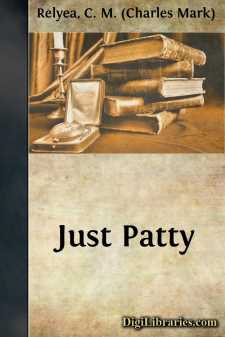Categories
- Antiques & Collectibles 13
- Architecture 36
- Art 48
- Bibles 22
- Biography & Autobiography 816
- Body, Mind & Spirit 145
- Business & Economics 28
- Children's Books 18
- Children's Fiction 14
- Computers 4
- Cooking 94
- Crafts & Hobbies 4
- Drama 346
- Education 58
- Family & Relationships 59
- Fiction 11831
- Foreign Language Study 3
- Games 19
- Gardening 17
- Health & Fitness 34
- History 1378
- House & Home 1
- Humor 147
- Juvenile Fiction 1873
- Juvenile Nonfiction 202
- Language Arts & Disciplines 89
- Law 16
- Literary Collections 686
- Literary Criticism 179
- Mathematics 13
- Medical 41
- Music 40
- Nature 179
- Non-Classifiable 1768
- Performing Arts 7
- Periodicals 1453
- Philosophy 66
- Photography 2
- Poetry 897
- Political Science 203
- Psychology 45
- Reference 154
- Religion 516
- Science 126
- Self-Help 86
- Social Science 82
- Sports & Recreation 34
- Study Aids 3
- Technology & Engineering 59
- Transportation 23
- Travel 463
- True Crime 29
Our website is made possible by displaying online advertisements to our visitors.
Please consider supporting us by disabling your ad blocker.
Children of the Tenements
Categories:
Description:
Excerpt
THE RENT BABY
Adam Grunschlag sat at his street stand in a deep brown study. He heeded not the gathering twilight, or the snow that fell in great white flakes, as yet with an appreciable space between, but with the promise of a coming storm in them. He took no notice of the bustle and stir all about that betokened the approaching holiday. The cries of the huckster hawking oranges from his cart, of the man with the crawling toy, and of the pedler of colored Christmas candles passed him by unheard. Women with big baskets jostled him, stopped and fingered his cabbages; he answered their inquiries mechanically. Adam's mind was not in the street, at his stand, but in the dark back basement where his wife Hansche was lying, there was no telling how sick. They could not afford a doctor. Of course, he might send to the hospital for one, but he would be sure to take her away, and then what would become of little Abe? Besides, if they had nothing else in the whole world, they had yet each other. When that was no longer the case—Adam would have lacked no answer to the vexed question if life were then worth living.
Troubles come not singly, but in squads, once the bag be untied. It was not the least sore point with Adam that he had untied it himself. They were doing well enough, he and his wife, in their home in Leinbach, Austria, keeping a little grocery store, and living humbly but comfortably, when word of the country beyond the sea where much money was made, and where every man was as good as the next, made them uneasy and discontented. In the end they gave up the grocery and their little home, Hansche not without some tears; but she dried them quickly at the thought of the good times that were waiting. With these ever before them they bore the hardships of the steerage, and in good season reached Hester Street and the longed-for haven, only to find—this. A rear basement, dark and damp and unwholesome, for which the landlord, along with the privilege of keeping a stand in the street, which was not his to give, made them pay twelve dollars a month. Truly, much money was made in America, but not by those who paid the rent. It was all they could do, working early and late, he with his push-cart and at his stand, she with the needle, slaving for the sweater, to get the rent together and keep a roof over the head of little Abe.
Five years they had kept that up, and things had gone from bad to worse. The police blackmail had taken out of it what little profit there was in the push-cart business. Times had grown harder than they ever were in Hester Street. To cap it all, two weeks ago gas had begun to leak into the basement from somewhere, and made Hansche sick, so that she dropped down at her work. Adam had complained to the landlord, and he had laughed at him. What did he want for twelve dollars, anyway? If the basement wasn't good enough for him, why didn't he hire an upstairs flat? The landlord did not tell him that he could do that for the same rent he paid for the miserable hole he burrowed in....








